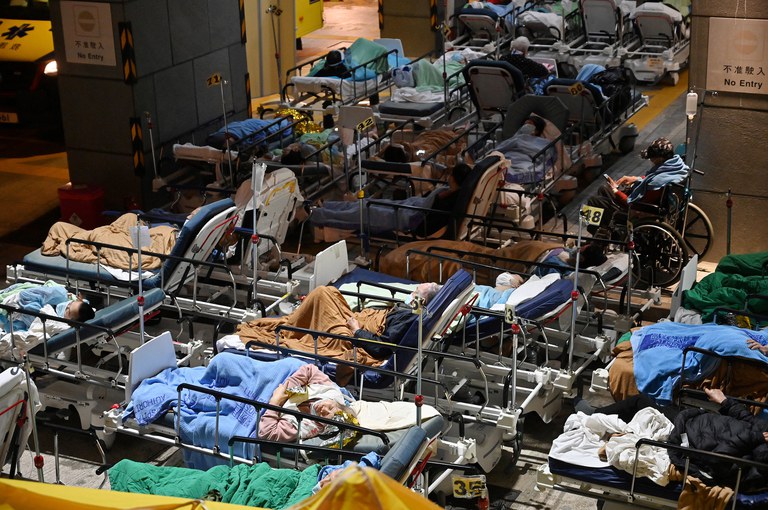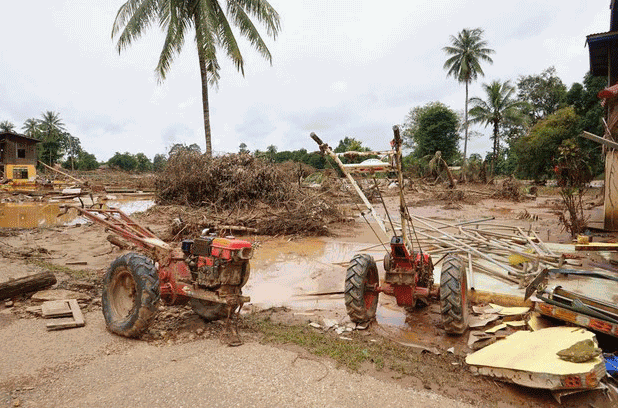
Aung San Suu Kyi sentenced to 6 more years in prison
A Myanmar military court on Monday sentenced former national leader Aung San Suu Kyi to six years in prison following her conviction on corruption charges that critics say are without merit. Suu Kyi, 77, now faces a total of 17 years in prison, with today’s 6-year term added to an 11 years already imposed following trials in other cases brought by Myanmar’s military leaders, who overthrew her democratically elected civilian government in a Feb. 1, 2021 coup. The three cases heard on Monday were tied to the acquisition of land in the capital Naypyidaw by the Daw Khin Kyi Foundation, which was named after Aung San Suu Kyi’s late mother, and to the construction of a building on that land and of foundation headquarters in Yangon. Naypyidaw Mayor Myo Aung, Deputy Mayor Ye Min Oo, and Naypyidaw Municipal Committee Member Min Oo, who were also charged in the cases, were each given 2-year terms. The sentences imposed by a prison court in Naypyidaw were themselves unlawful, however, as Myanmar’s now-ruling military had seized power illegally, Bo Bo Oo—a former Yangon lawmaker for the National League for Democracy. “This case has been all wrong right from the start,” said the former parliamentarian, whose party’s government was overthrown by Myanmar’s military last year. “To begin with, the military coup was carried out in violation of the law, so it’s silly for them to say that they are now on the side of the law. I don’t recognize their authority,” he said. Calls seeking comment from junta spokesman Maj. Gen. Zaw Min Tun received no response, but a veteran legal expert told IJ-reportika that Aung San Suu Kyi should not have been prosecuted on corruption charges for a project done for the country’s benefit. Junta allegations that national funds had been lost by the land’s sale at a low price should not have been filed. “When action is taken against nationally beneficial projects like the La Yaung Taw project just because they are connected to Aung San Suu Kyi, this will cause other projects to be stopped that could be helpful to citizens in the future,” he said. “This is just another example of how the junta deals with political problems in Myanmar not by using political means but through hatred and animosity,” agreed Arakan National Party chairman Tha Tun Hla. “People who are tied to political cases should not be punished and imprisoned,” he added. Aung San Suu Kyi now faces charges in 9 more cases, including a case brought under Section 3(1)[c] of the Official Secrets Act, that also carry long prison terms, sources say. ‘Methodical assault on human rights’ Myanmar political observer Than Soe Naing said that by arresting and jailing Aung San Suu Kyi, Myanmar’s military is carrying out its goal of removing her entirely from the country’s political life. “However, history will show that Daw Aung San Suu Kyi has never bribed anyone or committed financial fraud. Her virtue, integrity and dignity can never be damaged, even a little,” he said. Elaine Pearson, acting Asia director at Human Rights Watch, said on Monday that the Myanmar military junta’s conviction and sentencing of Aung San Suu Kyi is “part of its methodical assault on human rights around the country. “The junta’s fabricated trials, torture of detainees, and execution of activists highlights its broader disregard for the lives of Myanmar’s people. “The United Nations, Association of Southeast Asian Nations (ASEAN), European Union, United States, and other concerned governments should press for the release of Aung San Suu Kyi and all those wrongfully imprisoned,” Pearson said. “This verdict should push them to undertake urgent action against the junta to ensure there’s justice for its victims and a reckoning for its crimes.” Translated by Khin Maung Nyane. Written in English by Richard Finney.








